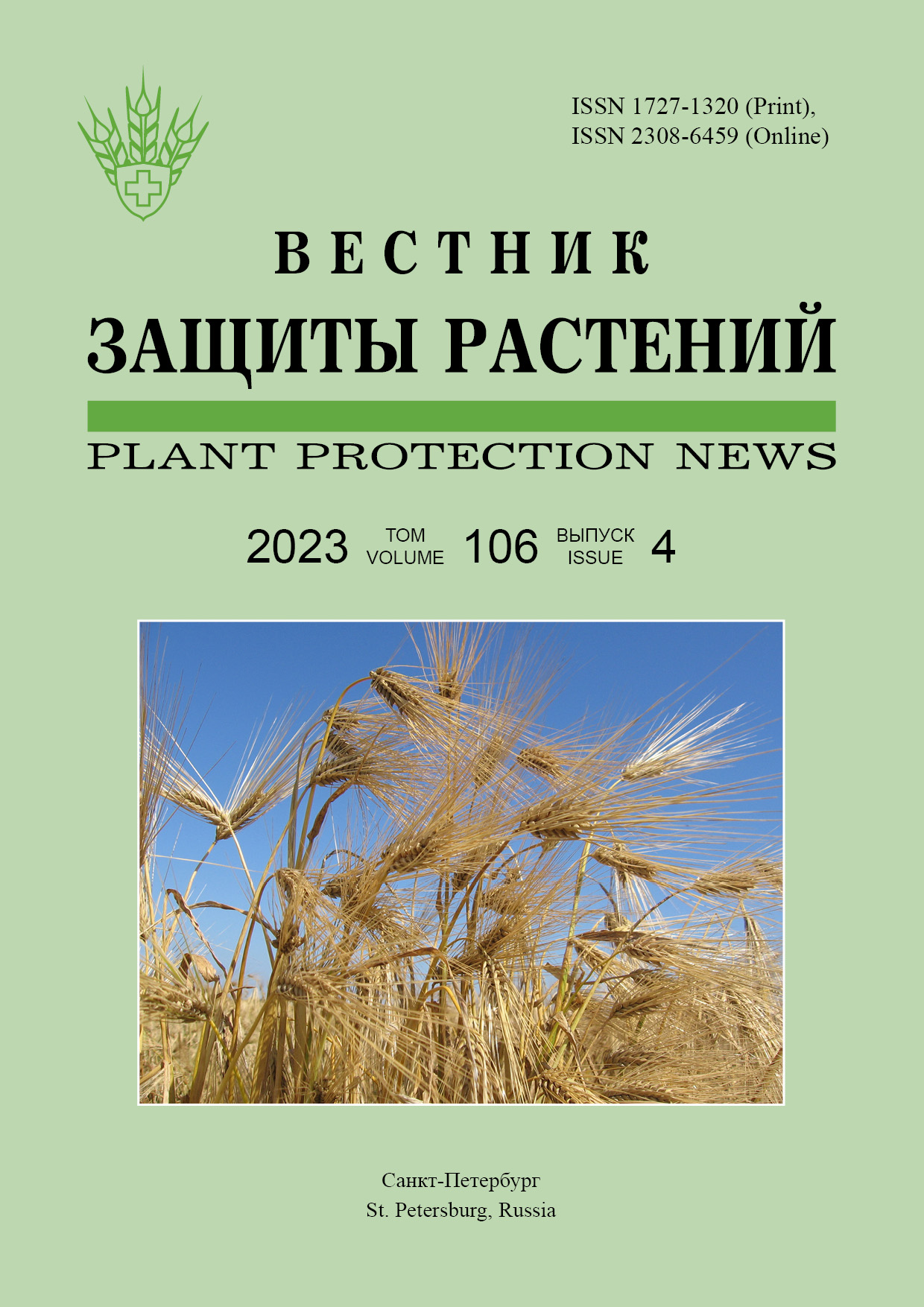Susceptibility of Bombyx mori larvae to the microsporidium Nosema bombycis from the silkworm and Nosema sp. from the cotton bollworm
Keywords:
parasitic protists, host range, virulence, laboratory culture, biological controlAbstract
Microsporidia are widespread parasites and cause diseases in economically important insects. A microsporidian isolate NspHA22 was discovered in the cotton bollworm Helicoverpa armigera in South-Western Russia. It showed 100 % sequence identity of small subunit rRNA gene to Nosema bombycis, a natural parasite of the silkworm Bombyx mori. However, after feeding second or third instar B. mori larvae with spores of the new isolate, insect mortality didn’t differ from that of the control, and no sporulation was revealed in alive and perished insects. In contrast, feeding N. bombycis spores isolated from B. mori resulted in high levels of host mortality and intense parasite sporulation at all the infection dose and larval instars used. This likely indicates that the isolate NspHA22 belongs to a species different from N. bombycis, in spite of identity of rDNA sequences.



